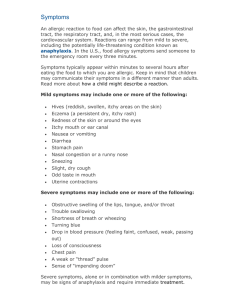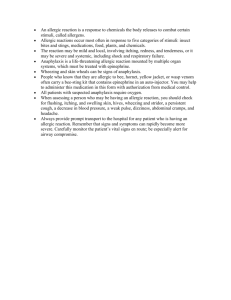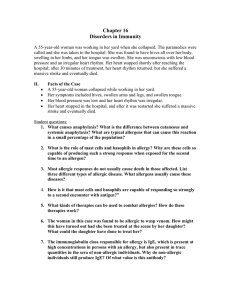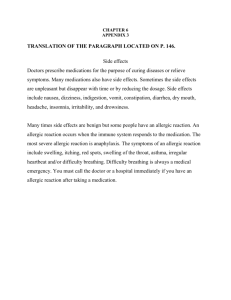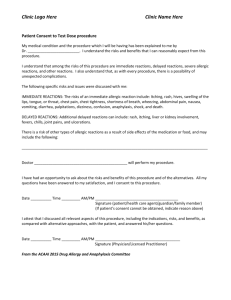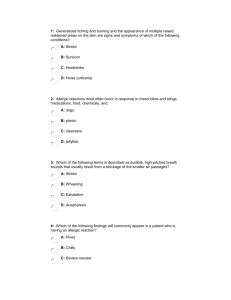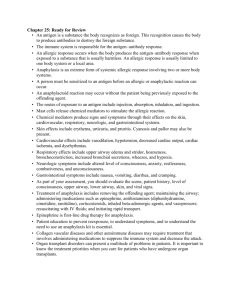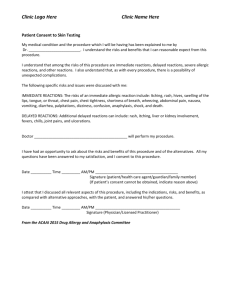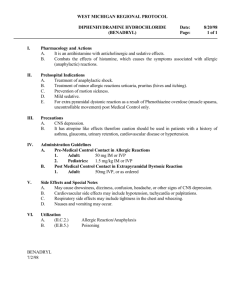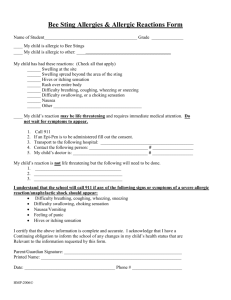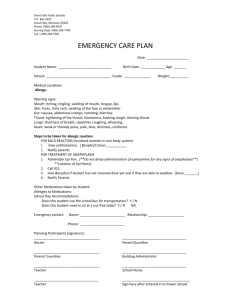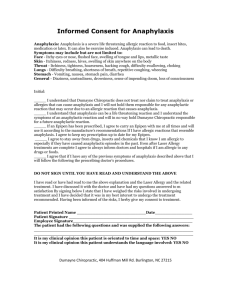REGIONAL COOPERATIVE CARE PARTNERSHIP
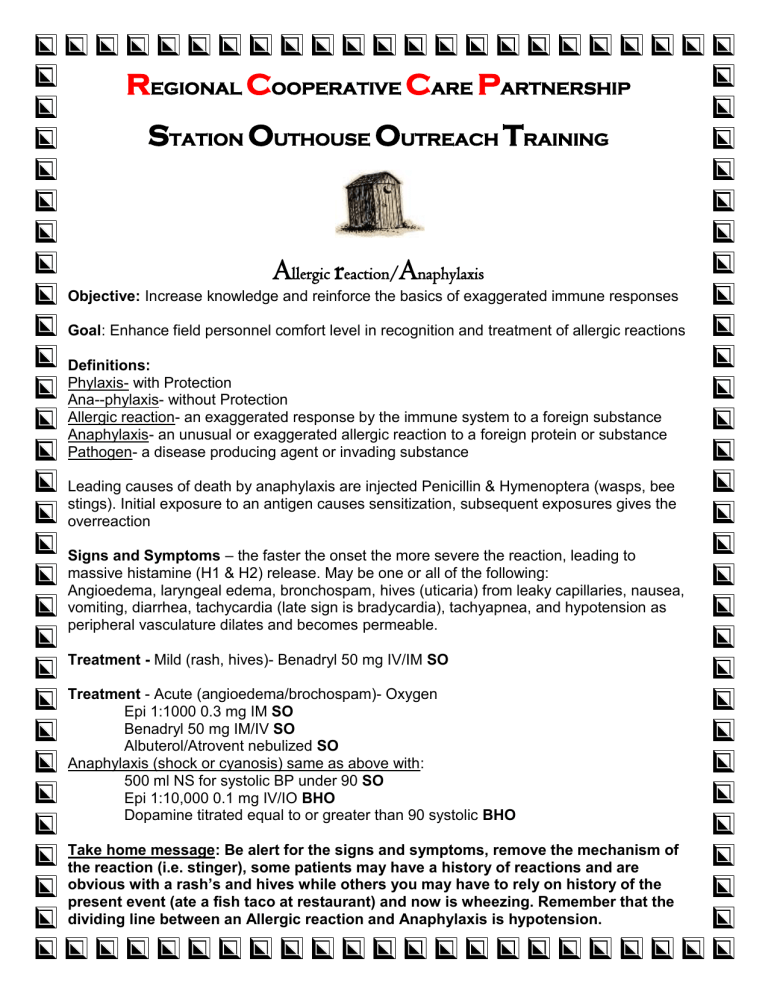
R
EGIONAL
C
OOPERATIVE
C
ARE
P
ARTNERSHIP
S
TATION
O
UTHOUSE
O
UTREACH
T
RAINING
A
llergic
r
eaction/
A
naphylaxis
Objective: Increase knowledge and reinforce the basics of exaggerated immune responses
Goal : Enhance field personnel comfort level in recognition and treatment of allergic reactions
Definitions:
Phylaxis- with Protection
Ana--phylaxis- without Protection
Allergic reaction- an exaggerated response by the immune system to a foreign substance
Anaphylaxis- an unusual or exaggerated allergic reaction to a foreign protein or substance
Pathogen- a disease producing agent or invading substance
Leading causes of death by anaphylaxis are injected Penicillin & Hymenoptera (wasps, bee stings). Initial exposure to an antigen causes sensitization, subsequent exposures gives the overreaction
Signs and Symptoms
– the faster the onset the more severe the reaction, leading to massive histamine (H1 & H2) release. May be one or all of the following:
Angioedema, laryngeal edema, bronchospam, hives (uticaria) from leaky capillaries, nausea, vomiting, diarrhea, tachycardia (late sign is bradycardia), tachyapnea, and hypotension as peripheral vasculature dilates and becomes permeable.
Treatment - Mild (rash, hives)- Benadryl 50 mg IV/IM SO
Treatment - Acute (angioedema/brochospam)- Oxygen
Epi 1:1000 0.3 mg IM SO
Benadryl 50 mg IM/IV SO
Albuterol/Atrovent nebulized SO
Anaphylaxis (shock or cyanosis) same as above with:
500 ml NS for systolic BP under 90 SO
Epi 1:10,000 0.1 mg IV/IO BHO
Dopamine titrated equal to or greater than 90 systolic BHO
Take home message: Be alert for the signs and symptoms, remove the mechanism of the reaction (i.e. stinger), some patients may have a history of reactions and are obvious with a rash’s and hives while others you may have to rely on history of the present event (ate a fish taco at restaurant) and now is wheezing. Remember that the dividing line between an Allergic reaction and Anaphylaxis is hypotension.
